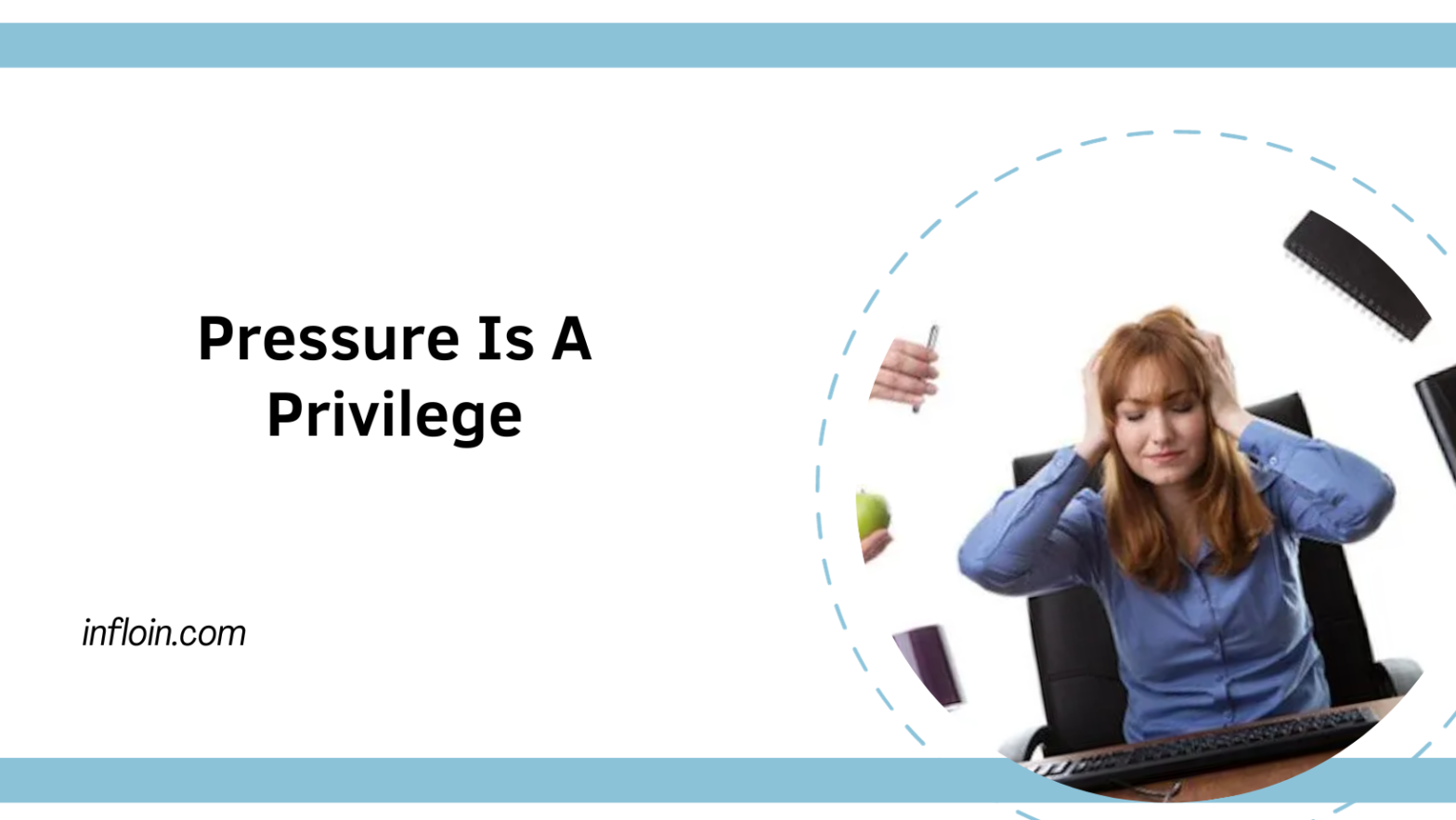Pressure is a Privilege – This quote holds special meaning for leaders when competing to win big deals or promotions, yet can also be taken more broadly to describe people attempting to reach their goals while feeling the pressure.
Instead of seeing pressure as something negative, embrace it as something that can help make you better. Recognizing and effectively managing it are the keys to thriving under stress.
It’s a way of life
Pressure can arise from external expectations that seem insurmountable and out of your control, yet you still feel pressured by them. While you cannot always prevent pressure from building up within yourself, taking steps to manage it and achieve more can help manage its effects on life – for instance by taking some “time out” from stressful situations to consider what matters to you most can help manage pressure more effectively.
Peer pressure can be an enormous source of anxiety. It could range from simply agreeing with what everyone else wants when buying an MP3 player to going along with group decisions to drink or smoke. Peer pressure may be hard to resist but there are ways you can make sure it stays out of your life in ways that benefit both you and those closest to you.
Studies on pressure in non-human species are beginning to take shape, showing they are susceptible to similar pressure effects as humans. It will be crucial, however, that studies be done on how failure impacts multiple groupmates as well as themselves.
Pressure moments occur when there is an immediate and uncertain result to what you are undertaking, along with an increased sense of responsibility towards groupmates. These emotions cause arousal and anxiety which often results in stress and depression.
It’s a way of thinking
Pressure can be intense – whether you are a hospital manager preparing to receive injured patients, a lecturer or student about to take an important exam, or an artist trying to create something beautiful. Living under this kind of strain can hinder genuine creativity while draining you emotionally, leading to subpar work product.
One common approach to managing pressure is to tighten your jaw and toughen up. Unfortunately, however, this approach may backfire when dealing with unexpected and high-stress situations in your professional life – for instance when an unexpected request to pitch your product to an entire company comes your way or when someone unexpectedly invites you to their party when their parents will be attending.
Studies of this phenomenon among non-human species have revealed that animals are susceptible to pressure effects and that stressors have a direct correlation with cognitive performance. More work must be done, however, in exploring contexts in which such effects appear among non-human animals as well as understanding how they impact decision-making and social interactions interact with these effects.
It’s a way of being
Everyday, humans and other animals face situations in which they must make choices or perform tasks beyond their current abilities – this is called pressure – often with negative repercussions for individual well-being or competition from others that makes dealing with these pressures even harder to bear.
One common approach to dealing with pressure is becoming mentally tougher; however, this strategy may not always work successfully. A better strategy would be cultivating mental flexibility – an idea taken from acceptance and commitment therapy (ACT) as well as Buddhist philosophy that enables you to adapt in response to whatever comes your way in life – so you can move in the direction most beneficial to your success regardless of any unexpected events.
Journaling can also help you become aware of and identify your emotions and feelings, helping to connect to your authentic self, which in turn opens the way to genuine art and connections. Furthermore, journaling may be used to work through difficult feelings and release them more easily – so it’s best if it remains solely for your eyes; otherwise worry may sabotage its efficacy.
It’s a way of achieving
Pressure can be used as an invaluable asset when it comes to reaching goals, provided it’s used properly and not misused. Otherwise, you risk becoming overwhelmed and giving in under the burden. Pressure is a natural part of life and should not be seen as something to avoid; rather it should be seen as motivation that drives action toward goal attainment. Nonetheless, it is essential to distinguish between pressure and stress: their differences lie in how each perceives and experiences their respective situations.
Under pressure, your heart rate increases and you experience difficulty focusing. Skills you have performed countless times may seem awkward and unfamiliar – this is a sure sign of how important an outcome of this situation is to you; these emotions are powerful motivators and enable people like Michael Jordan, Christiano Ronaldo, Tom Brady and the All Blacks to perform so effectively under stress.
Although you may be used to feeling pressure at work, it’s important to remember that stress will always be present. What matters is how we manage it – don’t fall into the trap of believing you need to become mentally tougher in order to face up to pressure!


